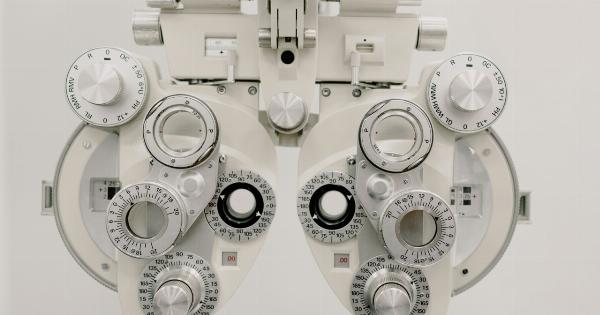Air pollution is a major problem that affects millions of people around the world. It is not just harmful for the environment but can also have an adverse effect on human health.
In recent years, scientists have discovered that air pollution can affect our eyesight. Research studies conducted in different parts of the world have shown that people living in areas with high levels of air pollution have a greater risk of developing eye problems such as cataracts, glaucoma, and dry eye syndrome.
Cataracts
A cataract is a clouding of the natural lens in the eye that affects vision. It often develops slowly and may not cause any symptoms at first.
However, over time, it can cause blurred vision, difficulty seeing in bright light, halos around lights, and changes in the way colors are seen. Cataracts are the leading cause of blindness worldwide, and research studies have found that air pollution can increase the risk of cataracts in both adults and children.
Glaucoma
Glaucoma is a group of eye disorders that damage the optic nerve, which can lead to vision loss and blindness.
It is often caused by high pressure within the eye, but other factors such as genetics, age, and lifestyle can also contribute to the development of the disease. Studies have shown that air pollution can increase intraocular pressure, which is a major risk factor for glaucoma. People living in areas with high levels of air pollution are more likely to develop glaucoma than those who live in clean air areas.
Dry Eye Syndrome
Dry eye syndrome is a common condition that occurs when the eyes do not produce enough tears or the tears evaporate too quickly. It can cause discomfort, irritation, and vision problems.
Research studies have found a link between air pollution and dry eye syndrome. Exposure to air pollutants such as nitrogen dioxide, sulfur dioxide, and particulate matter can damage the tear film and increase the risk of dry eye syndrome.
How Air Pollution Affects the Eyes
Air pollution contains a mixture of harmful substances such as sulfur dioxide, nitrogen dioxide, particulate matter, and ozone. These pollutants can enter the eyes and cause damage to the delicate tissues that make up the eye.
When the eyes are exposed to air pollutants over a prolonged period, it can lead to chronic inflammation, oxidative stress, and DNA damage, which can increase the risk of various eye diseases.
Preventing Eye Problems Caused by Air Pollution
Preventing eye problems caused by air pollution requires a combination of measures aimed at reducing exposure to pollutants and protecting the eyes. Here are some tips to reduce the risk of eye problems:.
1. Avoid Outdoor Activities During High Pollution Days
Check your local air quality index (AQI) regularly and avoid outdoor activities during high pollution days. If you have to go outside, wear protective eyewear that can shield your eyes from pollutants.
2. Use Air Purifiers and Humidifiers
Use air purifiers and humidifiers indoors to reduce indoor pollution levels and maintain healthy humidity levels. This can help reduce the risk of dry eye syndrome and other eye problems.
3. Wear Sunglasses
Wear sunglasses that provide 100% UV protection and block out pollutants when going outdoors. This can help protect your eyes from harmful UV rays and pollutants.
4. Consume a Healthy Diet
Eat a healthy diet rich in vitamins and antioxidants that can help protect the eyes from damage caused by pollutants.
Foods that can help protect the eyes include dark leafy greens, citrus fruits, berries, and omega-3 rich fatty fish such as salmon and tuna.
5. Quit Smoking
Smoking is a major risk factor for many eye diseases and can worsen the effects of air pollution on the eyes. Quitting smoking can improve your overall eye health and reduce the risk of eye problems caused by air pollution.
Conclusion
Air pollution is a growing concern that can have a significant impact on our vision and eye health. It is essential to take steps to reduce exposure to pollutants and protect our eyes from the harmful effects of air pollution.
By adopting healthy lifestyle habits and following the tips mentioned above, we can ensure that our eyes stay healthy and protected from the damaging effects of air pollution.





























